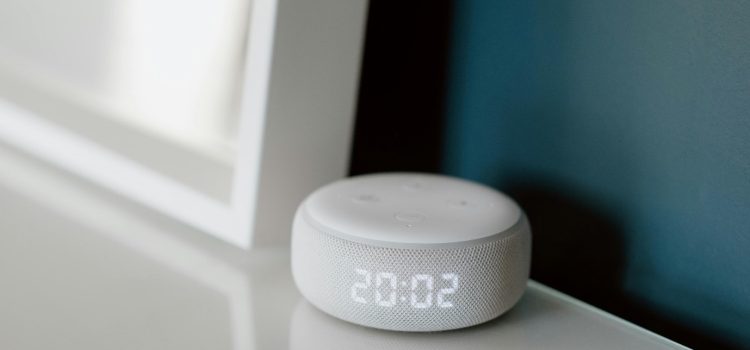
The Best Smart Home Hubs
Smart home hubs serve as the backbone of any connected home, orchestrating a symphony of devices from lights to locks, thermostats to security cameras. With numerous options available, selecting the best hub for your needs can be daunting. This guide will explore the top smart home hubs, analyze their features, and provide comparative insights to help you make an informed decision.

Introduction to Smart Home Hubs
A smart home hub acts as a central point of control, allowing various smart devices to communicate with each other. They often support multiple communication protocols like Zigbee, Z-Wave, and Wi-Fi, enabling seamless integration of devices from different manufacturers. With the rising popularity of smart homes, these hubs have become essential for anyone looking to create an interconnected living space.
Key Features of Smart Home Hubs
Compatibility
One of the most critical aspects of a smart home hub is its compatibility with various devices and ecosystems. The best hubs support a wide range of devices from multiple brands, ensuring you are not locked into a single ecosystem.
Ease of Use
User-friendliness is crucial for smart home hubs. A good hub should have an intuitive app interface, easy setup processes, and straightforward device integration. This ensures that users of all technical levels can manage their smart homes effectively.
Voice Assistant Integration
Integration with voice assistants like Amazon Alexa, Google Assistant, and Apple Siri can significantly enhance the functionality of a smart home hub. This feature allows users to control their devices using voice commands, adding convenience and accessibility.
Automation Capabilities
Automation is a defining feature of smart home hubs. The best hubs allow users to create complex automation routines that can trigger specific actions based on time, location, or other conditions. This can include turning off lights when leaving the house or adjusting the thermostat based on weather conditions.
Security
Security is paramount in smart home technology. The best hubs offer robust security features to protect against unauthorized access and ensure the privacy of user data. This includes encryption, two-factor authentication, and regular firmware updates.
Top Smart Home Hubs
- Samsung SmartThings Hub
Features:
- Compatibility: Supports Zigbee, Z-Wave, and Wi-Fi devices.
- Ease of Use: User-friendly app with straightforward setup.
- Voice Assistant Integration: Compatible with Alexa and Google Assistant.
- Automation Capabilities: Advanced automation features with multiple triggers and conditions.
- Security: Strong security protocols and regular updates.
Pros:
- Wide compatibility with numerous devices.
- Powerful automation options.
Cons:
- Slightly higher price point.
- Occasional connectivity issues reported by users.
- Amazon Echo Plus
Features:
- Compatibility: Integrates well with Zigbee and Alexa-enabled devices.
- Ease of Use: Simple setup process through the Alexa app.
- Voice Assistant Integration: Built-in Alexa for voice control.
- Automation Capabilities: Basic automation features, more advanced options available through Alexa Routines.
- Security: Regular updates and strong security measures.
Pros:
- Built-in voice assistant.
- Easy integration with Alexa ecosystem.
Cons:
- Limited compatibility compared to dedicated hubs.
- Automation features are not as advanced.
- Hubitat Elevation
Features:
- Compatibility: Supports Zigbee, Z-Wave, and LAN devices.
- Ease of Use: Requires some technical knowledge for setup and configuration.
- Voice Assistant Integration: Compatible with Alexa and Google Assistant.
- Automation Capabilities: Highly customizable automation routines.
- Security: Focus on local processing for enhanced privacy.
Pros:
- Advanced automation capabilities.
- Strong focus on security and privacy.
Cons:
- Steeper learning curve.
- No built-in voice assistant.
- Apple HomePod Mini
Features:
- Compatibility: Best for Apple HomeKit-compatible devices.
- Ease of Use: Seamless integration with the Apple ecosystem.
- Voice Assistant Integration: Siri integration for voice control.
- Automation Capabilities: Robust automation through the Home app.
- Security: High security standards and privacy protections.
Pros:
- Excellent integration with Apple devices.
- User-friendly for Apple ecosystem users.
Cons:
- Limited to HomeKit-compatible devices.
- Higher cost compared to some competitors.
- Google Nest Hub
Features:
- Compatibility: Works well with Google Assistant and compatible devices.
- Ease of Use: Simple setup with Google Home app.
- Voice Assistant Integration: Built-in Google Assistant.
- Automation Capabilities: Good automation features, enhanced through Google Assistant Routines.
- Security: Regular updates and strong security practices.
Pros:
- Built-in voice assistant.
- Integrates well with Google ecosystem.
Cons:
- Limited compatibility with non-Google devices.
- Automation features could be more advanced.
Comparative Analysis Table
| Feature | Samsung SmartThings Hub | Amazon Echo Plus | Hubitat Elevation | Apple HomePod Mini | Google Nest Hub |
| Compatibility | Zigbee, Z-Wave, Wi-Fi | Zigbee, Alexa | Zigbee, Z-Wave, LAN | HomeKit | Google Assistant, compatible devices |
| Ease of Use | High | High | Medium | High | High |
| Voice Assistant | Alexa, Google Assistant | Alexa | Alexa, Google Assistant | Siri | Google Assistant |
| Automation | Advanced | Basic | Advanced | Robust | Good |
| Security | Strong | Strong | Strong | Very Strong | Strong |
| Price | $$$ | $$ | $$ | $$$$ | $$ |
Conclusion
Selecting the best smart home hub depends largely on your specific needs and existing ecosystem. If you prioritize compatibility and advanced automation, the Samsung SmartThings Hub and Hubitat Elevation are excellent choices. For those already invested in the Alexa or Google ecosystems, the Amazon Echo Plus and Google Nest Hub offer seamless integration and ease of use. Apple users will find the HomePod Mini an ideal fit for their smart home setup.
When making your decision, consider the compatibility with your existing devices, the ease of use, the automation capabilities you desire, and the security features you need. Each of the hubs discussed offers unique strengths that cater to different aspects of smart home management, ensuring there is a perfect hub for every home.










